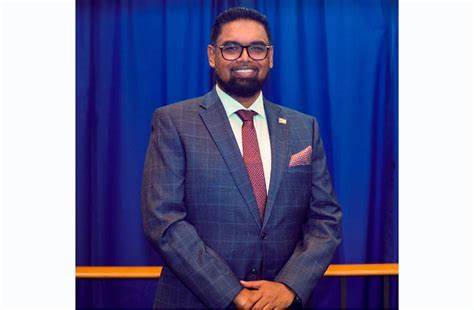The EU Observer Mission released its report on the September 1 election ( news in Guyana Nov 21, 20, 19, 18). I wish to address one critique from the EU report that is also headlined in a news item and that forms the theme of all news and commentaries on the subject, “incumbent had undue advantage”. This phenomenon is not unique and not confined to Guyana. It is the nature of governance, elections, and campaigns not only in Guyana but in Europe and also globally. All incumbents similarly take advantage of the use of their office. I did Comparative Politics earning a post graduate degree and as learned incumbents in every country, including in the great USA, enjoyed (and are enjoying), the undue advantages of incumbency. Albeit, in some places like Western Europe, UK, Canada, the advantages of incumbency are not so glaringly abused as in other countries in Africa, Latin America, and the Anglophone Caribbean; Europeans have independent state agencies as well as use of courts (and law enforcement) that deter abuse of incumbency.
In Guyana, ‘undue advantage’ is part of our political culture since the first democratic election in 1992. If indeed, President Ali or the PPP “enjoyed an undue advantage”, it was also so under all previous administrations going back to Desmond Hoyte who ushered in the first relatively democratic elections in Guyana leading to his defeat. The latter suggests that incumbency does not guarantee re-election. It is not forgotten that incumbent Presidents Donald Ramotar and David Granger suffered defeats in 2015 and 2020 respectively. Keith Rowley and the PNM suffered a humiliating defeat last April in Trinidad amidst undue incumbent advantage.

The advantages of incumbency in political campaigns are well established in the political literature and that was required reading for students like myself when we studied politics decades ago. As learned or read in political science, it is expected that an incumbent in every country would or will take advantage of the resources of the state in re-election as allowed by his office and by law. In every country, it is inevitable for an incumbent to use state resources during an election campaign – security related. An incumbent must also perform official duties; government does not stop working or functioning after an election is announced. In some countries, like USA, the incumbent is billed (as per going rates) for using certain state resources (vehicles, aircrafts, etc.) in an election campaign when on the hustings. The President of USA is allowed to campaign traveling on Air Force One, vehicles, helicopters, etc., but he pays the cost for using them. Ditto equipment used by the VP. They are not required to pay any costs for engaging in official matters relating to the Presidency or VP even if they can be considered campaign related. Members of the American cabinet are not permitted to engage in election campaigns, and therefore, the issue and or of costs of their using government resources do not arise. An independent government agency determines what is and isn’t election or campaign related and bill the campaign accordingly. In other countries, incumbents are not required to foot any bills using state resources. In India, there is a model code of conduct for incumbents that is enforced by the election commission; politicians can be sanctioned if they violate it. Perhaps it can be considered for Guyana if politicians (parties) and GECOM can agree.
I observed first-hand ‘undue incumbent advantage’ at play in several countries, not the least being Grenada, Antigua, Indi (multiple times), Fiji, Mauritius, St. Lucia, Tobago (multiple times), St. Kitts, Trinidad (multiple times), USA (multiple times), among others. In most countries, especially in the Caribbean, it was abusive. Incumbency don’t always guarantee re-election (Mitchell of Grenada twice, Atal Vajpyaee in 2004, among others were defeated. Manmohan Singh was crushed in 2014. Vice President Kamala Harris couldn’t translate incumbency into victory. Donald Trump lost his bid for re-election in 2020 in spite of undue advantage of incumbency.
It is to Al, VP Jagdeo, and the PPP’s election and campaign skills that they were able to use the benefits of incumbency to boost their campaign. It was not just incumbency that led to their electoral success. They ran a better and more disciplined campaign than the opposition. The PPP has had a better electoral machinery. The main opposition was in disarray and badly divided. Aubrey Norton was not able to use the advantage of incumbency to retain his Opposition Leader Position; newcomer WIN walloped him.It is true that PNC could not raise resources to compete, but leadership also matters.In 2020, PNC had resources and acceptable leadership; it governed badly. PPP governed better than PNC/APNU.
